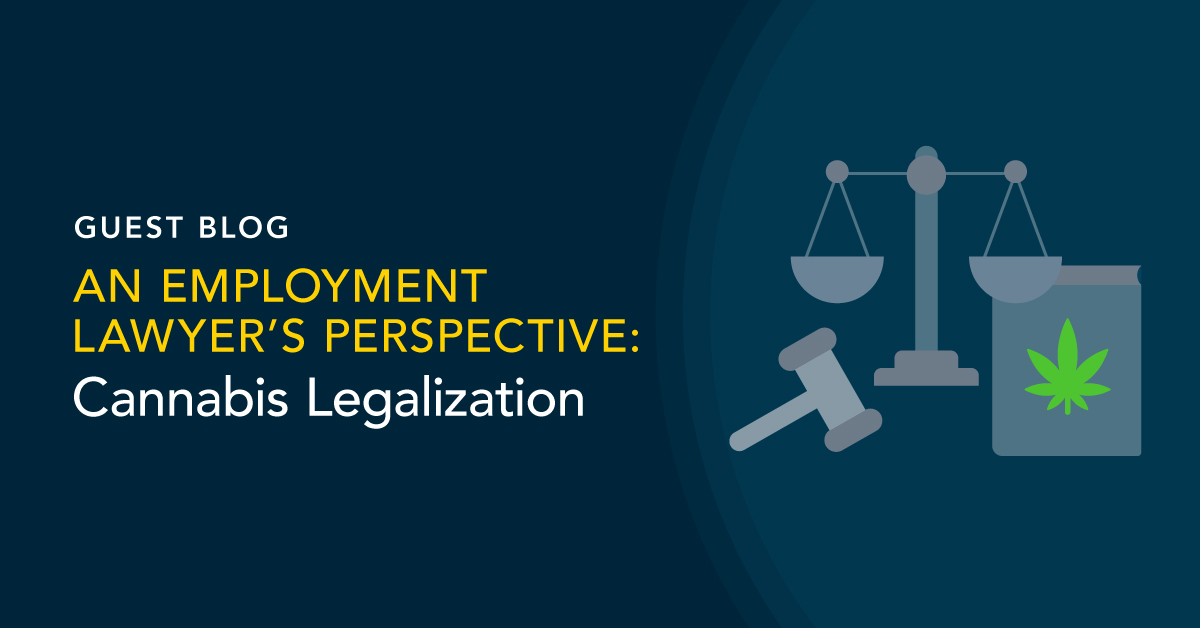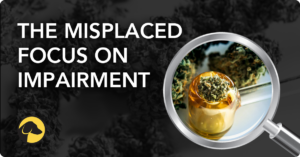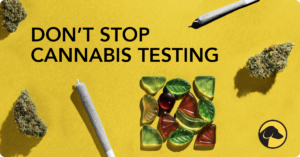
Looking Deeper at the Legal Effects of Cannabis Legalization
John, thanks so much for making the time to speak with me today. With your hands-on experience, we thought you could share your perspectives on how cannabis legalization impacts employers and employees.
Q: Please tell us about McGuireWoods.
A: McGuireWoods is one of the nation’s largest law firms, with a diverse geographic presence across the United States. Our history spans more than 187 years, and some of our clients have partnered with us for nearly 50 years. Yet, the firm is on the cutting edge of emerging issues. One example is our Cannabis, Hemp & CBD service team, which provides an interdisciplinary focus to countless cannabis-related legal issues. Our robust, nationwide labor and employment group routinely helps employers navigate drug testing and background check issues.
Q: Cannabis legislation seems to change daily. What are some of the most common reasons for which your clients seek counsel?
A: The most common questions we receive fall into three categories. First, employers ask for help balancing their strong desire to maintain a safe workplace with evolving public attitudes pertaining to cannabis use and legalization. Second, employers want to understand how they can reflect their compassionate desire to accommodate workers with disabilities who use medicinal cannabis while also enforcing their traditional “zero-tolerance” approach to drug use at work. Finally, multi-state employers (employers with operations in multiple states, often with different cannabis laws) often seek counsel updating their policies to reflect constantly changing state and local laws, particularly around drug testing processes, reasonable suspicion testing, and background checks.
Q: Obviously cannabis legalization impacts every employer in our country. Have you noticed any common characteristics among the clients contacting you?
A: You are exactly right that these issues span employer sizes, industries, and locations. However, I find that employers in manufacturing, transportation, public utility, healthcare, education, and safety-sensitive industries are trying to address competing issues such as their desire to build their workforce, the need to adhere to a strong company culture, and the often-overriding interest in safety. This is particularly true for multi-state employers who want to apply a consistent approach to cannabis testing and tolerance across all their employees.
Q: What are your thoughts on states that have or are considering workplace per se standards for cannabis impairment based on measured concentrations of THC in bodily fluids?
A: Lawmakers want to establish a scientific cutoff for THC concentration in bodily fluids to set a bright-line rule. The goal of these per se standards is to allow employers to determine if an employee is impaired at work without a subjective analysis. Although this goal is well intentioned, studies have found it difficult to calculate what blood (or other bodily fluid) concentrations of THC mean in terms of actual impairment due to the pharmacokinetics of how the body metabolizes THC.
It’s a complicated subject, but a more effective way to tackle the issue would be for lawmakers to focus on the science. Traditional drug tests that detect inactive metabolites do not help evaluate impairment. Lawmakers should account for test options that only identify the psychoactive THC molecules or that can only detect THC in the few hours after use (when studies show cannabis use is most likely to cause impairment). Both approaches would benefit from lawmakers acknowledging new technology that can accomplish this.
Q: What do you view as the biggest challenge for employers who must reconcile state cannabis laws with federal law?
A: I think the biggest challenge is overcoming the obstacle of thinking that because cannabis is illegal federally (and in many states), that it is an issue that does not need to be evaluated with any degree of care. The fact is that courts across the country have found that despite the federal illegality of cannabis, state laws may protect employees’ use of cannabis. Second to that is the issue multi-state employers face of whether to have different policies in different states or implement a “one size fits all” approach. Both have their pros and cons.
Q: How would you advise state legislators to approach cannabis legislation?
A: In some cases, it appears legislators have been passing cannabis-related legislation to score political points, appease voters, and help address inequity. However, this is sometimes accomplished at the expense of actual drug testing science and often gives short shrift to employers in safety-sensitive industries. In some cases, states are passing comprehensive legalization bills that remain silent on the employer-employee relationship, leaving employers at the mercy of courts to tell them what the law is. My advice, then, would be to engage the business community on how these laws should be structured and give employers flexibility in their relationships with employees. Lawmakers can create language to balance both employers’ and employees’ interests so that workplaces remain safe, and employees do not experience a conflict between workplace policies and state law.
Q: How would you advise clients wondering whether to eliminate cannabis drug testing entirely?
A: Every client who asks this question is different. Like any good legal answer, “it depends.” It depends on the size of the employer, the location of the employer, the industry and safety issues associated with the workplace, whether the employer is subject to a collective bargaining agreement, the corporate culture, difficulties with local hiring markets, and the employer’s risk tolerance. Unfortunately, there is no “one size fits all” answer to this question. Many companies are finding that they can achieve their goals without eliminating cannabis testing.
Q: Why do you think updated workplace drug testing policies are more important now than ever?
A: The primary reason is that each year, for the past several years, numerous states have substantially changed their laws and court decisions have been issued with increasing frequency. Large employers used to be fine reviewing and updating their drug testing policies every 4-5 years. Now, I recommend reviewing them much more frequently – every 12 months if the employer has a nationwide presence.
Q: Cannabis legalization has raised awareness about social equity and focused efforts to avoid repeating past mistakes. How can employers create workplace drug testing policies that ensure fairness?
A: Fairness is one of the most important hallmarks of a good drug testing policy. Fairness begins with a policy that clearly identifies the drug testing procedures, how reasonable suspicion is developed, which accidents may subject an employee to post-accident testing, and how random testing is administered. If the employer has different drug testing policies for different employee populations, the policy should establish the business justification for those differences. Some employers even have established “last chance” programs that do not automatically result in termination for a failed drug test. In all circumstances, though, consistency is key.
Thank you, John, for joining me for this Q&A. I look forward to following up in the future.
Thank you for having me. These are interesting issues, and I am always excited to discuss them.

October 28, 2021
By JESSICA COHEN TAUBMAN
Share












